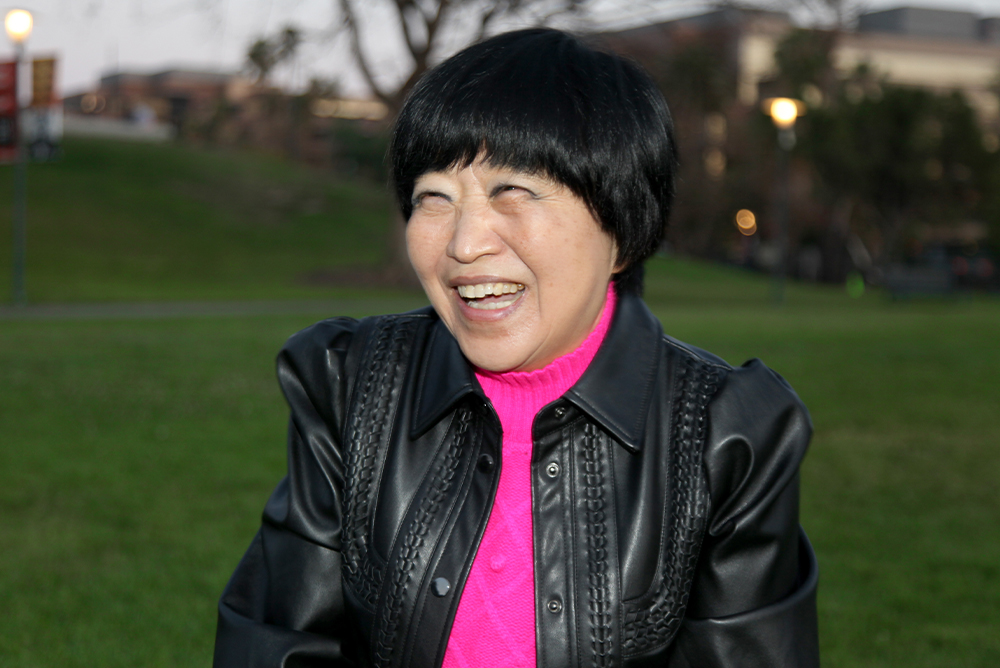
Photo by Aaron Salcido.
Kyeyoung Park is a professor of sociocultural anthropology and Asian American studies at UCLA and the author, most recently, of LA Rising: Korean Relations With Blacks and Latinos After Civil Unrest. Before taking part in “How Can Our Communities Escape Polarizing Conflict,” a Zócalo/California Wellness Foundation event co-presented with the Natural History Museum of Los Angeles County, Park joined us in our green room at the La Brea Tar Pits and Museum to talk music, travel, and the joy of studying human beings.
What’s the last book that you read that you love?
Recently I assigned a book by my old professor about interviews with this Moroccan tire worker. I cried. We’re talking about a 1968 Morocco tire worker who couldn’t afford to marry, was living alone, and probably had some mental health issues.
What got you interested in anthropology?
Originally I studied biology, but I wasn’t satisfied because they don’t really study human beings; I had to experiment with some kind of fly. I realized I was more interested in social science. I chose anthropology because I’m interested in individuals’ struggles and suffering. Conflict isn’t unfamiliar to me.
What’s your hidden talent?
I might be more perceptive than other people!
Where’s your favorite place to go?
I am a travel junkie. I’ve been to most places in the world … Tibet, Mongolia, you name it. Patagonia. Panama. Jamaica. China, six or seven times. My husband also loves travel. Last time we were in French Polynesia it was fascinating to see how many women were taxi drivers there. I haven’t seen that in other countries.
What’s next on your list?
I have yet to go to South Africa and also the Caribbean.
What’s one of your favorite parts of being a professor?
What’s greater than teaching human beings? When I make a difference, and when I discover a great student, you know, and hear their difficulties, their struggles. I’m really passionate about teaching. I used to spend hours on one student. My colleagues were worried! I couldn’t stop.
How do you destress?
I listen to music. It’s a luxury when I can read a novel; I don’t normally have time for that. But I’m devoted to writing, and so I don’t really want distractions. Traveling is really the way I get rid of my stress. It’s always something new, and you learn from the people.
Last question: what have you been listening to recently?
Mostly classic music. My mother was a music teacher before she got married. I grew up always listening to piano music. I think I truly find peace there.



